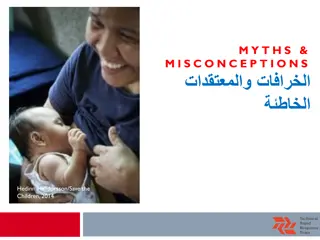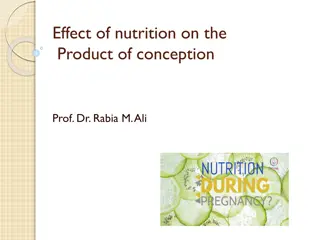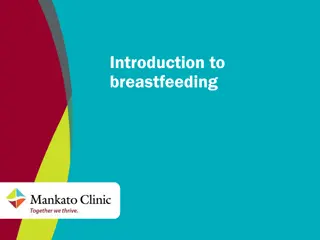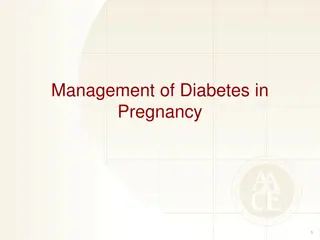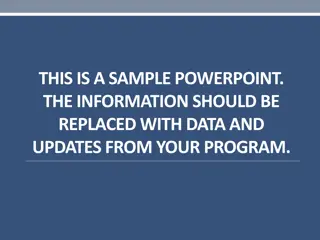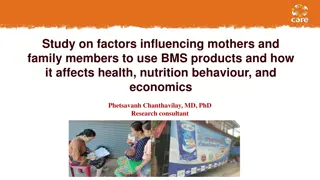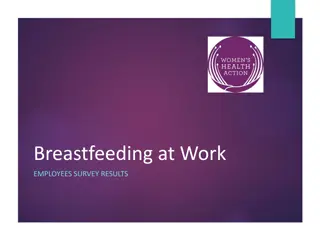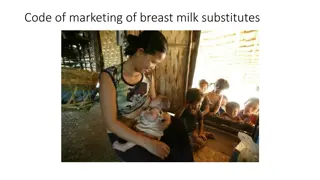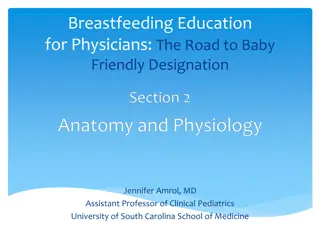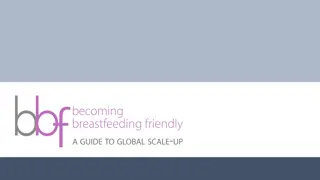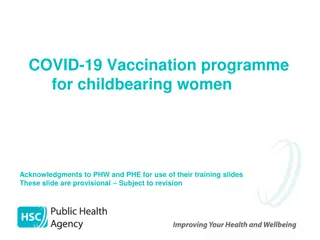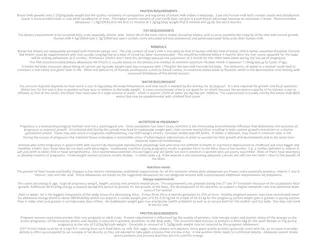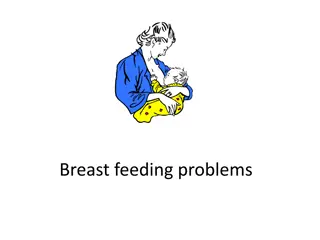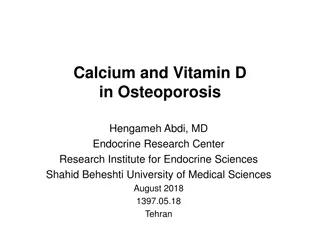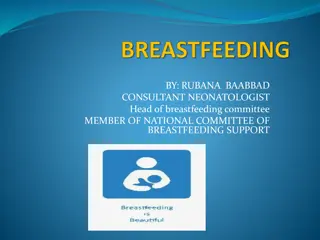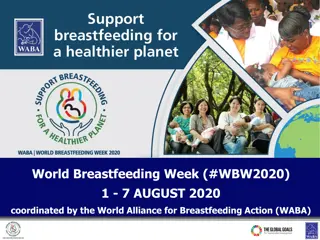Understanding the Importance of Iodine Supplementation for Pregnancy and Breastfeeding
Iodine is an essential mineral crucial for thyroid function and preventing birth defects like cretinism. It is found in varying amounts in soil, iodized salt, seafood, and certain foods. Iodized salt contains 400 micrograms of iodine per teaspoon. Daily iodine requirements differ based on age and life stage, with higher needs during pregnancy and breastfeeding. Supplementing with iodine is vital for women of childbearing age due to the risk of low iodine levels and decreased use of iodized salt in the US. Taking prenatal vitamins with iodine before and during pregnancy can prevent Iodine Deficiency Disorders and support baby's health while breastfeeding.
Download Presentation

Please find below an Image/Link to download the presentation.
The content on the website is provided AS IS for your information and personal use only. It may not be sold, licensed, or shared on other websites without obtaining consent from the author. Download presentation by click this link. If you encounter any issues during the download, it is possible that the publisher has removed the file from their server.
E N D
Presentation Transcript
Goals Increase knowledge regarding the importance of iodine supplementation for pregnant and breastfeeding women. Improve ability to discuss iodine supplementation with participants. Accurately assign Risk 427.4 Inadequate Iron, Iodine or Folic Acid Supplementation.
What is iodine? Essential mineral needed in very small trace amounts Helps with thyroid function and prevents goiter Helps prevent birth defects like cretinism, a condition characterized by severely stunted physical and mental growth
Where is iodine found? Varying amounts in the soil Table salt iodized since the 1920 s Seafood and seaweed Small amounts found in: Grains Dairy Meat
Why add iodine to salt? Iodine was one of the first food fortifications designed to prevent a common health issue (goiter). Later discovered to prevent certain birth defects (cretinism). Salt was chosen for iodine supplementation because everyone routinely uses salt and fortification is easy and inexpensive.
How much iodine is in salt? One teaspoon of iodized salt contains 400 micrograms (mcg) of iodine. Encourage participants to purchase iodized salt when they shop for salt.
How much iodine is needed each day? Infants under 12 months of age: 110 to 130 mcg Children over age 1 year: 90 mcg Adults and adolescents: 150 mcg Pregnant: 220 to 250 mcg Breastfeeding Women: 290 mcg
Why add iodine to supplements? Women of childbearing age are at higher risk of low iodine levels. There is an increased need during pregnancy and breastfeeding because mothers are the sole source of iodine for their babies. There is decreased use of iodized salt in U.S as people use more non-iodized salts (i.e. sea salt, kosher salt, flavored salts, rock salt, pickling salt)
When are iodine supplements needed? Taking prenatal vitamins with iodine before and during pregnancy can help prevent Iodine Deficiency Disorders (IDDs). Taking vitamins with iodine while breastfeeding helps to maintain adequate iodine levels for mom and baby.
What are the best vitamins to use for iodine? Recommend a vitamin that contains 150 mcg of iodine to use during pregnancy and breastfeeding. Not all prenatal multivitamins contain iodine. Encourage participants to read the labels before purchasing and look for iodine or potassium iodide.
What does WIC recommend? Take prenatal vitamins with iodine when pregnant or breastfeeding. Do not increase salt intake but when adding salt to food, use iodized forms. Combine vitamins and food to reach the recommended levels of iodine intake.
When should a risk be assigned? Risk 427.4 Inadequate Supplementation of Iron, Iodine, or Folic Acid is the iodine related risk associated with pregnancy. In TWIST, ask the supplementation question for pregnant women What vitamins or other supplements do you take? . Assign the risk if the woman is not taking a vitamin or supplement with iodine Do not assign the risk if the woman is taking a vitamin or supplement with iodine Do not assign the risk If the woman is taking a vitamin but does not know if it contains iodine. Encourage supplementation and refer them to their health care provider.
Questions? Check with your WIC nutritionist or state nutrition consultant.


